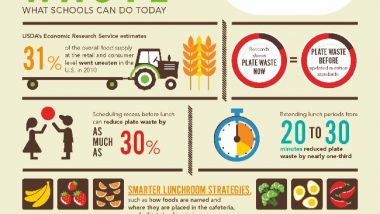Poor EU states are not fulfilling their landfill waste reduction targets, EU Report says. Cyprus, Croatia, Greece, Malta as well as Turkey are still greater than 75% of their waste to landfill. The EU will for certain, have to take Slovakia to court for landfill , and also attain adequate waste diversion and recycling to reduce the amount of waste being sent to landfill.
If the high waste diversion targets (landfill waste reduction targets), which are essential to satisfy decrease targets, are to be fulfilled, a lot more has to be done, by these countries.
It will, without any doubt, be essential that every EU member country collaborates closely to increase the general public's understanding of the ideas and and principles of the circular economy. The numbers of individuals that have actually genuinely analysed the significance of the circular economy are still to low in their numbers, in the failing EU countries.
As a matter of fact it would certainly be, in the opinion of the author that few individuals outside the waste management sector understand just what the circular economy implies. The absence of comprehension even amongst technical and scientific reporters, is evident from the manner in which the popular press hardly ever go beyond making use of the term “recycling”. They continually use the term “recycling”when they ought to be describing, the “circular economy” to the general public. This means that landfill waste reduction targets are not taken seriously enough.
Industry is whoever, keen to see progress toward a circular economy through landfill waste reduction targets. Industry leads the general public in their readiness to welcome the concepts of the circular economy. In the point of view of the writer, most of the biggest globalised business currently see the circular economy as an important advantage to companies. It is viewed as offering both sustainable raw material streams, as well as much more secure raw materials supplies at stable prices. And, in addition to that, investors so much wish to buy shares in environment-friendly organisations that they seem to be quite capable of compelling business directors to sit-up and also take notice, or otherwise see their share values drop.
Regrettably, the writer's viewpoint is that in numerous EU countries the general public have no idea concerning this sea-change in landfill waste reduction targets, at board level, from hostility to recycling, to welcoming the circular economy. This change has already largely taken place, within numerous firms.
The general public have actually not been informed that recycling, and landfill waste reduction targets, although valuable ideas, will soon be incorporated (by EU regulations), into the “circular economy model“. This will, from the current date onward, become the driver of policy decisions, as well as a much more all-inclusive idea compared to recycling alone.
Unless in the minds of the man in the street, the idea of the circular economy is recognised as being “green” and sustainable, the to their minds, ever-rising levels of recycling might simply look like an ever-rising cost burden. This would be a perpetual burden on their local tax rates. But, the concept of the circular economy is the opposite to that.
When fully and consistently implemented across the EU, it will create more jobs and prosperity, and will not make the EU member states poorer, more highly taxed, nations.
On the whole the EU reusing/ waste diversion scene represents great progress toward achieving landfill waste reduction targets, as out in the figures listed below. Yet, the essential first step of achieving landfill waste reduction targets, actually be done?
European recycling rates rise as landfill use falls (and waste diversion rises)
Less of Europe's household rubbish is being sent to landfill and more is being recycled than 10 years ago. A new report from the European Environment Agency (EEA) compiled municipal waste management statistics from 2004 to 2014 in all 28 EU states plus Iceland, Norway, Switzerland and Turkey.
The report shows 27 of the 32 countries reduced their use of landfills, with the overall rate falling from 49% in 2004 to 34% in 2014. In eight countries, including Sweden, Norway and Switzerland, almost nothing went to landfill.
Overall recycling rates also saw an improvement, rising from 23% to 33%. The UK saw a massive increase from 23% to 44% during the period.
However, the results were not entirely consistent across-the-board in seven countries, the proportion of recycled municipal waste barely changed and in two, it decreased slightly.
Cyprus, Croatia, Greece, Malta and Turkey are still sending more than three quarters of their municipal waste to landfill thereby flouting the landfill waste reduction targets. These figures will need to improve rapidly if the EU's 2020 target of recycling half of all household waste is to be achieved, the EEA states.
Earlier this year the EU announced it would be taking Slovakia to court for violating landfill rules. via Energy Live News european-recycling-rates-rise-as-landfill-use-falls
Landfill Waste Reduction Targets/ Waste Diversion – The Recycling Target EU Wide is 50% for 2020
Despite progress in living up to European legislation on waste management, the outlook for reaching the EU's 50% recycling target for municipal waste by 2020 is mixed and many countries will have to step up their efforts, according to the EEA.
It says that it is important to note, however, that the data used in this assessment do not necessarily show progress against the target for all countries. Member states can choose between four different methods to monitor their progress, and the data uses the same method for all countries.
Despite progress in living up to European legislation on waste management, in terms of the landfill waste reduction targets the outlook for reaching the EU's 50% recycling target for municipal waste by 2020 is mixed and many countries will have to step up their efforts, according to the EEA.
In addition, data on waste and indicators is limited in some cases. Countries have different definitions of what constitutes municipal waste or the make-up of recycled material. For example, some countries include only waste from households, while others include similar wastes from commercial activities and offices. Improvements in waste data and further harmonisation of national reporting methods would help the effectiveness of policy measures.
The EEA says municipal waste only accounts for around 10% of total waste generated in the EU, but it remains a visible problem. Preventing it reduces the associated environmental pressures and recycling would help turn waste turns it into a valuable source of material for the economy.
The European Commission last year proposed new targets for municipal waste a target for recycling 65% of municipal waste by 2030 and a target to reduce landfill to a maximum of 10% of municipal waste by 2030. These proposals are part of the Commission's circular economy package, which aims to maintain the value of products, materials and resources in the economy for as long as possible. via ciwm-journal europe-recycling-sending-less-waste-landfill/
New Report Indicates that the Circular Economy is Also Being Held Back by Barriers
Many of the barriers identified in the cases are already being focused on and are being addressed through the circular economy action plan, according to the Commission. In this instance, the analysis of the interface between waste and chemicals legislation or the development of plastics strategy. In addition, ongoing and scheduled REFIT exercises will also be informed about the results of the study.
This does not mean that all barriers can be removed and certainly not easily: barriers stem from different, possibly conflicting regulatory objectives (e.g. public or animal health, environmental protection). Any of these may be considered as more important than the circular economy. Moreover, the regulatory arrangements can be part of a very complex system that may be difficult or expensive to change.
The report is a direct contribution to the Action Plan on Circular Economy, which was adopted by the Commission on 5 December 2015. The package aims to help European businesses and consumers make the transition to a stronger and more circular economy and called for the removal of regulatory barriers to the circular economy. via ciwm-journal report-identifies-regulatory-barriers-circular-economy
Performance on landfill waste reduction targets is an uncertain picture, and once the exit of the UK gets underway, the removal of UK funding to the EU in general must surely be looming problem for the whole of the EU. The indication must be that the remaining wealthy nations will have to dig deeper into their pockets to fund the many waste reduction schemes to which the EU is now committed.





